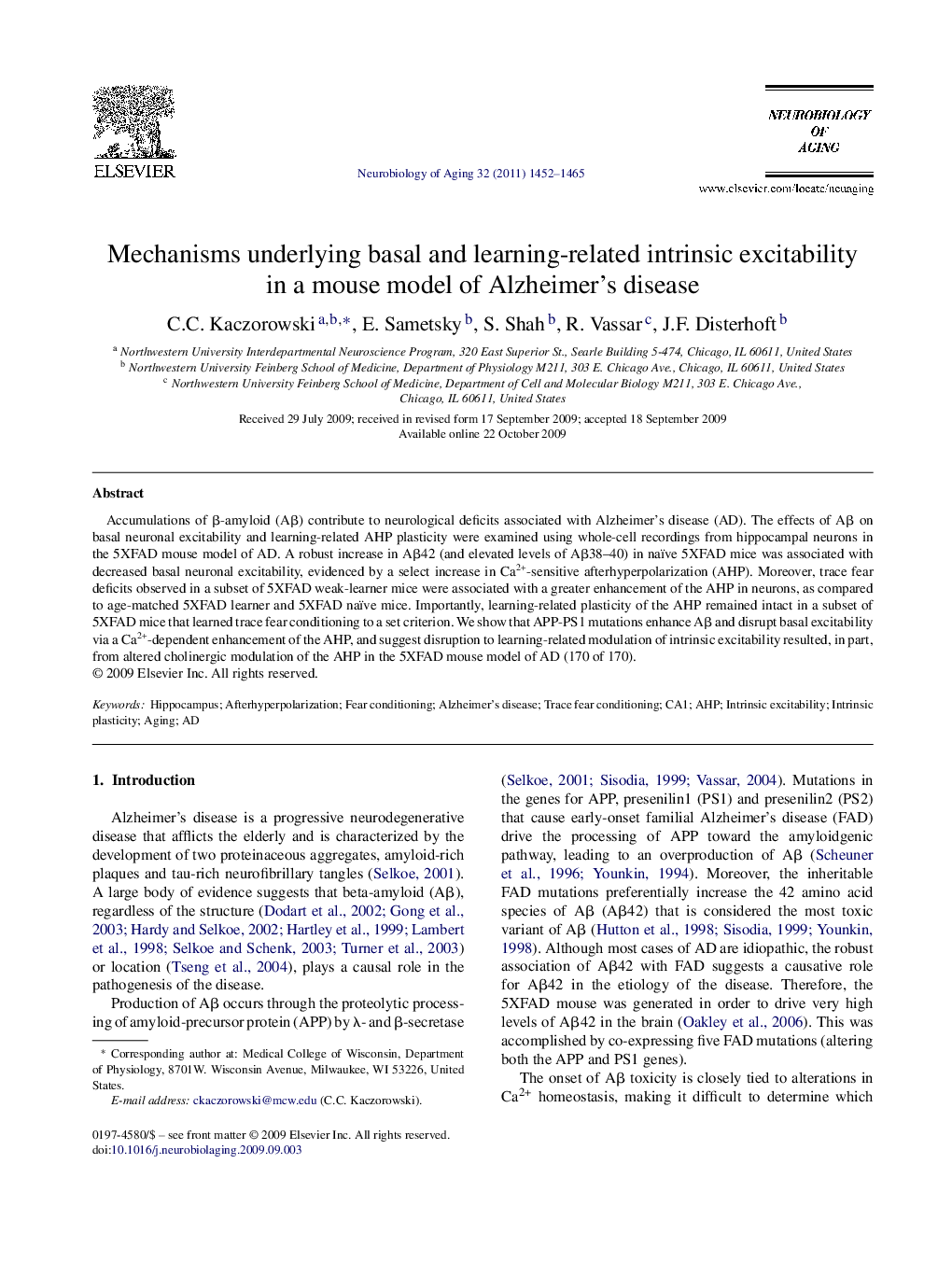| Article ID | Journal | Published Year | Pages | File Type |
|---|---|---|---|---|
| 330981 | Neurobiology of Aging | 2011 | 14 Pages |
Accumulations of β-amyloid (Aβ) contribute to neurological deficits associated with Alzheimer's disease (AD). The effects of Aβ on basal neuronal excitability and learning-related AHP plasticity were examined using whole-cell recordings from hippocampal neurons in the 5XFAD mouse model of AD. A robust increase in Aβ42 (and elevated levels of Aβ38–40) in naïve 5XFAD mice was associated with decreased basal neuronal excitability, evidenced by a select increase in Ca2+-sensitive afterhyperpolarization (AHP). Moreover, trace fear deficits observed in a subset of 5XFAD weak-learner mice were associated with a greater enhancement of the AHP in neurons, as compared to age-matched 5XFAD learner and 5XFAD naïve mice. Importantly, learning-related plasticity of the AHP remained intact in a subset of 5XFAD mice that learned trace fear conditioning to a set criterion. We show that APP-PS1 mutations enhance Aβ and disrupt basal excitability via a Ca2+-dependent enhancement of the AHP, and suggest disruption to learning-related modulation of intrinsic excitability resulted, in part, from altered cholinergic modulation of the AHP in the 5XFAD mouse model of AD (170 of 170).
